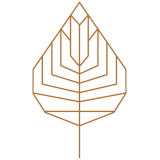Overview
Semantic technologies such as controlled vocabularies, thesauri, and knowledge graphs have been used throughout the history of information retrieval for a variety of tasks. Recent advances in knowledge acquisition, alignment, and utilization have given rise to a body of new approaches for utilizing knowledge graphs in text retrieval tasks.
This workshop focuses on the end-to-end utilization of knowledge graphs and semantics in text retrieval, text understanding and other IR-related applications. Its scope covers the acquisition, the alignment, and the utilization of knowledge graphs and semantic resources for the purpose of optimizing end-to-end performance of a system that responds to a user’s information need. Examples of such technologies and applications include entity ranking, entity linking, entity-based retrieval models, entity recommendation, document filtering, knowledge graph population, and more.
The goal of the KG4IR workshop is to consolidate the community efforts and study how such technologies can be employed in information retrieval systems in the most effective way. We are calling for papers on ongoing research and position papers as well as talk abstracts for future trends, tasks, and open problems to ensure that breakthroughs, and, technologies algorithms in this space are widely disseminated. We are particularly interested in practical experiences with KG technology both from academia and industry.
Topics of this workshop include but are not limited to:
- Acquisition for IR applications
- knowledge graph population and semantic resource construction for IR
- domain/task-specific knowledge graph construction
- knowledge representation for IR
- query-time knowledge extraction
- Alignment with and for queries
- entity linking for short queries and documents
- relation extraction for query and document modeling
- information integration and ontology matching
- entity search
- knowledge subgraph selection
- Utilization for text retrieval
- ad hoc document and passage retrieval
- understanding user queries
- question answering
- dialogue systems and conversational search
- event tracking and summarization
- knowledge-focused diversification and summarization of SERPs
- tracking of events
- complex answer retrieval
Dual Submission to the KG4IR Special Issue at the Information Retrieval Journal
Authors planning a submission to the KG4IR Special Issue in the Information Retrieval Journal, we offer the opportunity to simultaneously submit a talk abstract to the KG4IR workshop. In this case, please indicate the paper title of the journal submission when submitting the talk abstract.
Join our mailing list: kg4ir@googlegroups.com
